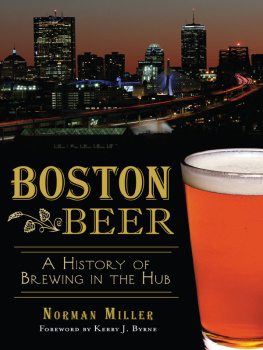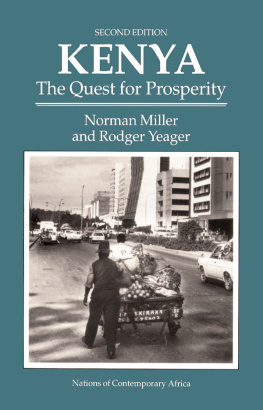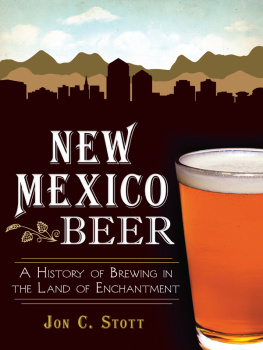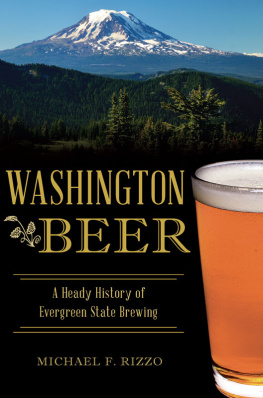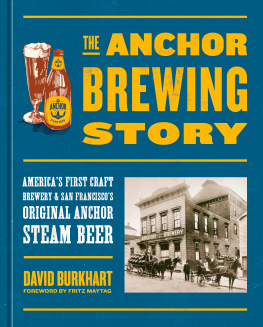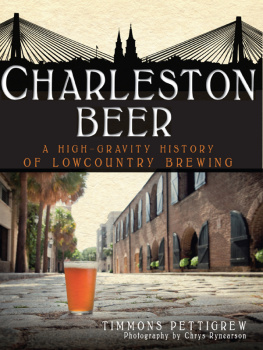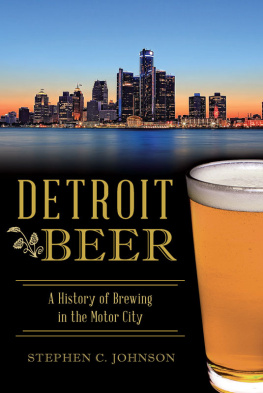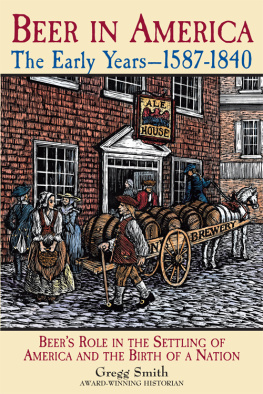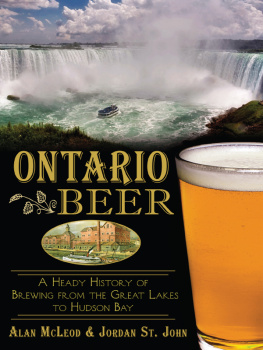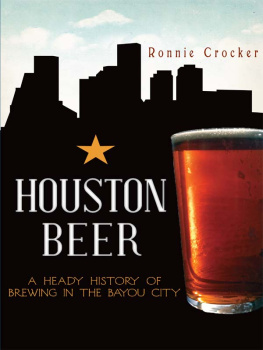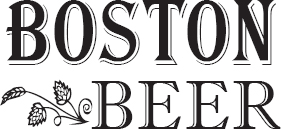
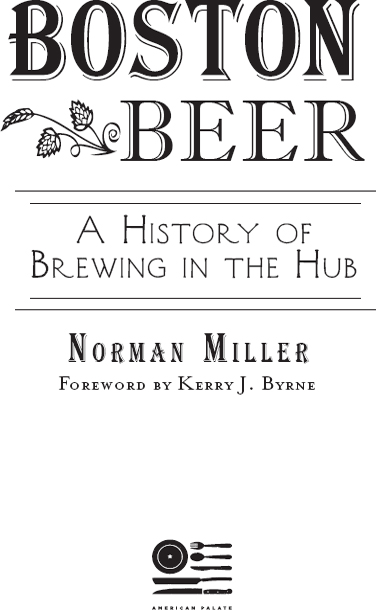
Published by American Palate
A Division of The History Press
Charleston, SC 29403
www.historypress.net
Copyright 2014 by Norman Miller
All rights reserved
Front cover: Courtesy Bill Damon.
First published 2014
e-book edition 2014
ISBN 978.1.62585.027.0
Library of Congress Cataloging-in-Publication Data
Miller, Norman, 1974
Boston beer : a history of brewing in the Hub / Norman Miller.
pages cm
print edition ISBN 978-1-62619-497-7 (paperback)
1. Beer--Massachusetts--Boston--History. 2. Breweries--Massachusetts--Boston--History. 3. Boston (Mass.)--Social life and customs. I. Title.
TP577.M56 2014
338.47663420974461--dc23
2014010144
Notice: The information in this book is true and complete to the best of our knowledge. It is offered without guarantee on the part of the author or The History Press. The author and The History Press disclaim all liability in connection with the use of this book.
All rights reserved. No part of this book may be reproduced or transmitted in any form whatsoever without prior written permission from the publisher except in the case of brief quotations embodied in critical articles and reviews.
CONTENTS
FOREWORD
Boston is the self-described Athens of America and Hub of the Universe. The city has long prided itself as a global leader of education, science, industry and innovation.
Our New England forebears relied on Yankee ingenuity and hard labor to create new and better ways to harvest fish from the ocean, granite from the ground, lumber from the forests and ice from rivers and ponds. New England ice, in fact, helped revolutionize the global food and drink trade in the 1800s.
We even pioneered ways to brew a better beera tradition that continues today in gloriously tasty fashion.
These most basic resourcesfish, stone, lumber, iceturned Boston into an economic powerhouse of great wealth and global reach that outpaces the citys relatively humble size. Boston, you might say, punches above its economic and cultural weight class.
Its no coincidence that our little corner of the planet, on the physical and cultural fringe of the United States, punches above its weight class on the global beer stage, too. After all, Boston is one of the best places in the world to enjoy great brew.
Hardworking Bostonians have loved to drink and to brew beer quite literally since European settlers first set foot in the region, as Norman Miller chronicles so well in his great new book.
Our thirst for tasty beer has grown through the centuries with our rising economic fortunes and standard of living. Bostonians today boast one of the worlds most sophisticated beer palates: great local breweries turn out every imaginable beer style, while most European export brewers count Boston as one of their largest overseas markets.
This is no accident of history. In fact, there is a direct correlation between our wealth and education and our thirst for world-class beer.
Beer is an accessible, easy-drinking product. Anyone can enjoy a good pint or can of beer, without affectation or elitism. Who doesnt love to throw back a couple icy cans of lager after a long day of work in the sun? Theres a reason the hardworking everyman is known in the American lexicon as Joe Six-Pack.
But its a mistake to classify beer as a simple product for the everyman. We can also sit back and appreciate beer for its subtlety, nuance, sophistication and variety, as consumers do in ever-increasing numbers, especially young adults.
Beer, you see, is and always has been one of mankinds great luxuries.
Beer is low in alcohol compared to pretty much all other forms of adult liquid enjoyment. So its a largely expensive and inefficient way to transfer the desired joys of drink from raw materials to production to consumer.
Tipplers get a big bang from a liter of booze; not so much a liter of lager.
As a commercial product, beer requires bulk methods of production and storage and advanced systems of trade and transportation. All those capabilities require advancing wealth. And around the world, beer consumption has typically risen with economic fortune. Boston has long been a leader in industry, transportation and economics. So it only stands to reason that weve long been a leader in brewing and beer drinking.
The liquid that we call beer is also quite a bit more complex than its working-class image would have you believe. Beer, even at its most basic, is a complicated balance of bitter spices, typically hops, and sweet liquor from grains that are first malted and then mashed with hot water to release their sugars. Only then is it fermented and conditioned. It takes more ingredients, more equipment, more processes and more science to create beer than it does wine or other forms of alcohol.
As a result, the variety of tastes, colors, flavors and ingredients found in beer far outpace those found in other alcoholic beverages. The sophisticated consumers of today are thrilled by the variety, the flavors and the culinary experiences that beer provides them. Its quite common these days to sit at the bar at a nice restaurant and hear customers question the bartender about hop varietals in a new beer.
Beer production suffered in Boston, as it did all around the country, from the effects of Prohibition in the 1920s and then the consolidation of the beer industry (and other food industries) in postWorld War II America.
In fact, the booming local industry was eventually reduced to almost nothing. But this downturn proved only a brief blip in New England history.
Boston in the 1980s began to recapture its rightful place as a center of the American beer industry, as one of the leaders of what weve come to call the craft beer movement.
Local businessman Jim Koch, the founder of the Boston Beer Co., reintroduced the nation to full-flavored domestic lager with the release of Samuel Adams Boston Lager in 1984. It took the nation by storm. Today, the Sam Adams pilot brewery and visitors center in the Jamaica Plain neighborhood is one of Bostons most popular tourist attractions. Critics are too quick to point out that most Samuel Adams beers are made elsewhere. Regardless, Bostonians treat and drink Sam Adams as one of their own, the company offices are in South Boston and Koch is a beloved local celebrity.
I remember my first sip of Boston Lager around 1987 or 1988, a story Ive shared with Koch over the years. I was at my girlfriends house senior year in high school. Her older brother was drinking Sam Adams and offered me a bottle. I was shocked by the flavor and remember making a face and calling it Yuppie beer. I grew up in a working-class family of Budweiser drinkers. Thats what we drank, and we wore the brand loyalty with pride, like you would as a Ford or Chevy family.
But remember, almost all Americans at that time who came of age in that downturn of the U.S. brewing industry, regardless of socioeconomic condition, had never tasted anything other than mass-produced domestic lager. We simply did not know what hops and malt tasted like! Ive since made up for lost time.
In 1986, not long after Boston Lager hit the market, a pair of enterprising and visionary Harvard Business School graduates, Rich Doyle and Dan Kenary, opened the humble Harpoon Brewery on the broken-down waterfront of Dirty Old Boston.
The turning point for Harpoon came in 1993, when it introduced Harpoon India pale ale as a summer seasonal beer, at a time when few Americans had heard of the well-hopped beer style. Bostonians fell in love with it.
Next page
